These are some of the most frequently downloaded lessons from the Zinn Education Project website. Despite and in response to the Executive Orders censoring teaching honestly, tens of thousands of teachers are committed to engaging students in a critical analysis of history and current events; and introducing the roles we can all play to shape a just future. When studying people’s history, students learn that democracy is not a spectator sport.
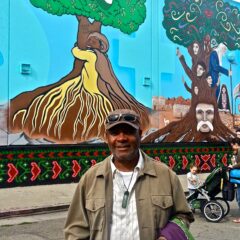 |
Teaching Palestine-Israel from the Perspective of Civil Rights and Black Power ActivistsBy Hannah Gann, Nick Palazzolo, Keziah Ridgeway, and Adam Sanchez This lesson highlights the complexity and diversity of thought as Civil Rights and Black Power leaders and organizations developed their views on Palestine-Israel. |
 |
U.S. Mexico War: “We Take Nothing by Conquest, Thank God”By Bill Bigelow This interactive lesson introduces students to the history and often untold story of the U.S.-Mexico War. Roles available in Spanish. |
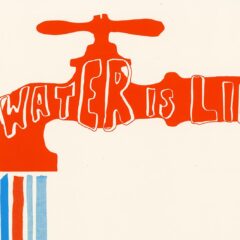 |
Water and Environmental RacismBy Matt Reed and Ursula Wolfe-Rocca A mixer activity, inspired by the 2016 Democracy Now! documentary Thirsty for Democracy, introduces students to the struggle of residents to access safe water for drinking, cooking, and bathing in the majority-Black cities of Flint, Michigan; Jackson, Mississippi; and Newark, New Jersey. |
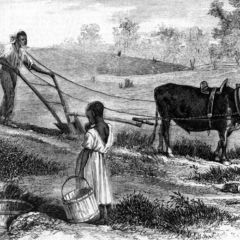 |
Reconstructing the SouthBy Bill Bigelow with companion lesson by Mimi Eisen and Ursula Wolfe-Rocca This role play engages students in thinking about what freedpeople needed in order to achieve — and sustain — real freedom after the Civil War. In the follow-up lesson, students explore primary sources that reveal key outcomes of the Reconstruction era. |
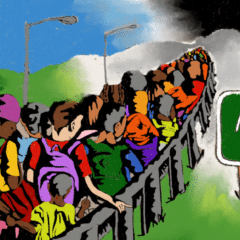 |
Deportations on Trial: Mexican Americans During the Great DepressionBy Ursula Wolfe-Rocca In this lesson, students analyze who is to blame for the illegal, mass deportations of Mexican Americans and immigrants during the Great Depression. |
 |
The Color LineBy Bill Bigelow This lesson on the countless colonial laws enacted to create division and inequality based on race helps students understand the origins of racism in the United States and who benefits. |
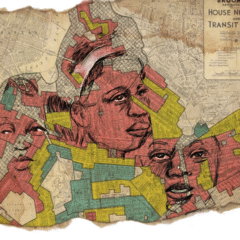 |
How Red Lines Built White Wealth: A Lesson on Housing Segregation in the 20th CenturyBy Ursula Wolfe-Rocca The mixer role play is based on Richard Rothstein’s The Color of Law, which shows in exacting detail how government policies segregated every major city in the United States with dire consequences for African Americans. |
 |
Subversives: Stories from the Red ScareBy Ursula Wolfe-Rocca In this mixer lesson, students meet 27 different targets of government harassment and repression to analyze why disparate individuals might have become targets of the same campaign, determining what kind of threat they posed in the view of the U.S. government. |
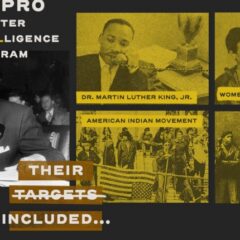 |
COINTELPRO: Teaching the FBI’s War on the Black Freedom MovementBy Ursula Wolfe-Rocca Through examining FBI documents, students learn the scope of the FBI’s COINTELPRO campaign to spy on, infiltrate, discredit, and disrupt all corners of the Black Freedom Movement. |
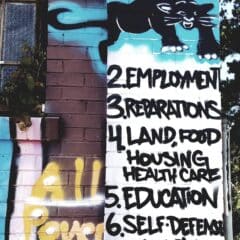 |
‘What We Want, What We Believe’: Teaching with the Black Panthers’ 10-Point ProgramBy Wayne Au How students can use the Black Panther Party’s 10-Point Program to assess issues in their own communities and to develop 10-Point Programs of their own. |
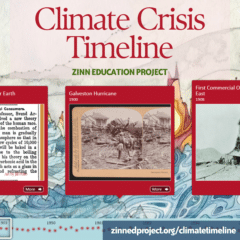 |
The Climate Crisis TimelineBy Mimi Eisen and Ursula Wolfe-Rocca This timeline of the climate crisis traces its roots from European colonial expansion and racial capitalism to present-day fossil fuel industry and government projects that exploit and destroy the Earth in the name of maximum profit. It also emphasizes moments and movements of resistance and activism that inform climate justice work today. |
